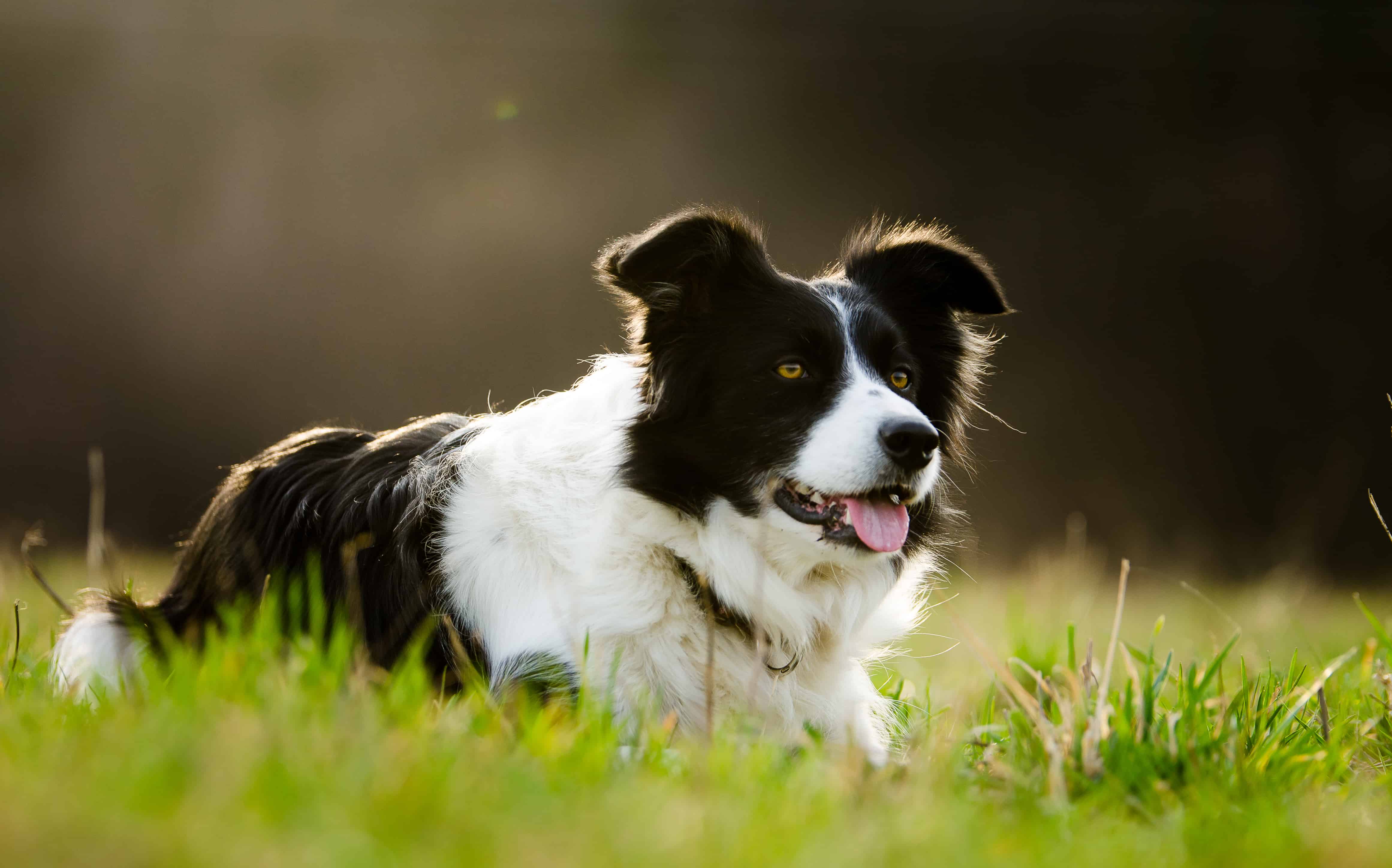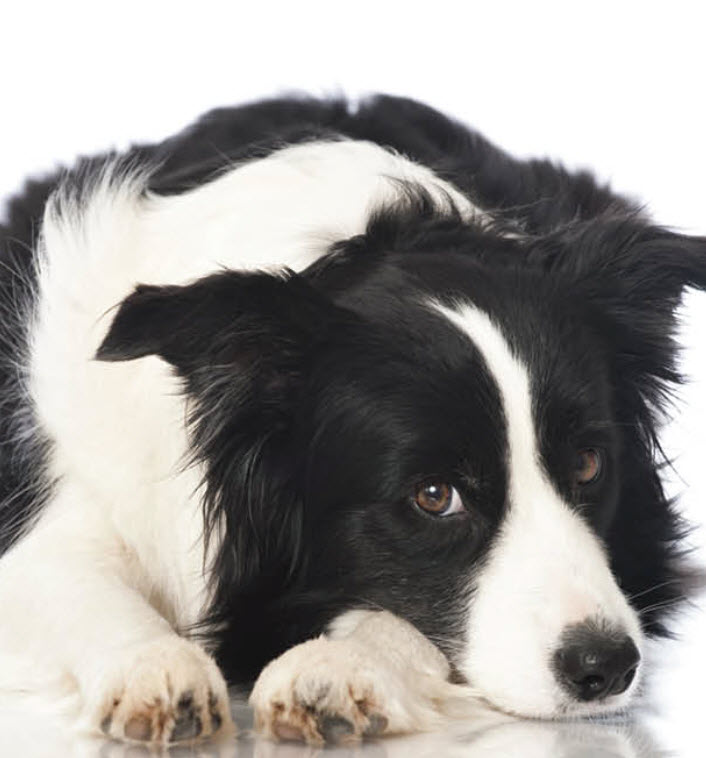Border Collie puppies start losing their baby teeth around three to four months old. This process usually completes by the time they are six months old.
Understanding your puppy’s teething timeline is crucial for their care. Border Collie puppies, like all breeds, go through a teething phase. During this time, they might chew more to ease discomfort. Knowing when they will lose their teeth can help you manage this stage better.
You can provide appropriate chew toys and monitor their dental health. This period is also an excellent time to start dental hygiene routines. By being aware of your puppy’s teething process, you can ensure a smoother transition from baby teeth to adult teeth. This knowledge helps in maintaining their overall well-being. Let’s dive deeper into the details of this teething phase.
Teething Timeline
The teething timeline of Border Collie puppies is fascinating. Puppies go through several stages of dental development. Understanding this timeline helps you provide the best care for your furry friend. Let’s explore the different stages of teething in Border Collie puppies.
Birth To 3 Weeks
During the first three weeks of life, Border Collie puppies have no teeth. They rely on their mother’s milk for nourishment. Their gums remain soft and undeveloped. Puppies are still very fragile and dependent on their mother.
3 To 6 Weeks
Between three to six weeks, the first set of teeth starts to appear. These are known as milk or deciduous teeth. Puppies will have a total of 28 milk teeth. This stage is crucial for their development. They begin to nibble on solid food.
6 To 12 Weeks
From six to twelve weeks, puppies continue developing their milk teeth. By the end of this period, all 28 milk teeth should be in place. Puppies will start to explore more solid foods. They may experience discomfort and chewing helps relieve this. This is a normal part of the teething process.

Credit: a-z-animals.com
Signs Of Teething
Teething is a natural process for Border Collie puppies. As they lose their baby teeth, there are several signs to look out for. Recognizing these signs helps you provide comfort and care during this phase.
Chewing On Objects
One of the first signs of teething is chewing. Border Collie puppies often chew on various objects to relieve discomfort. This behavior is common and can sometimes cause damage to your belongings.
To prevent this, give your puppy chew toys. This helps soothe their gums and keeps them away from furniture and shoes.
Drooling
Drooling is another sign of teething. You may notice more saliva around your puppy’s mouth and on their bedding. This is normal and usually not a cause for concern.
Wipe their mouth regularly to keep them clean and dry. This helps prevent skin irritation.
Irritability
Teething can make puppies irritable. They might be more fussy or whiny than usual. This is due to the discomfort in their gums.
Be patient and gentle with your puppy. Give them extra attention and care. This helps them feel secure and loved during this challenging time.
Caring For Teething Puppies
Caring for teething puppies can be both a joy and a challenge. Border Collie puppies, like all puppies, go through a teething phase. During this time, they need extra care and attention. Teething can cause discomfort and lead to chewing on household items. To help your puppy during this phase, follow these tips.
Provide Chew Toys
Chew toys are essential for teething puppies. They offer relief to sore gums. Choose safe, durable toys. Soft rubber toys work well. Avoid toys that break easily. Supervise your puppy while they chew. Replace damaged toys promptly.
Monitor Diet
Your puppy’s diet affects their teething process. Ensure they eat a balanced diet. Soft foods can be easier on sore gums. Avoid hard treats during this phase. Provide fresh water at all times. Check with your vet for dietary recommendations.
Ensure Comfort
Comfort is key for a teething puppy. Create a cozy space for them. Use soft bedding and blankets. Maintain a calm environment. Reduce stress and loud noises. Comforting your puppy helps ease their teething pain.

Credit: www.vidavetcare.com
When Adult Teeth Emerge
Border Collie puppies go through a teething phase. This phase involves losing their puppy teeth and growing adult teeth. The process usually spans several weeks. Below, we’ll explore the different stages of this process.
12 To 16 Weeks
At 12 weeks, Border Collie puppies start losing their baby teeth. The incisors fall out first. These are the small teeth at the front. New adult incisors then begin to grow in. Puppies may chew more during this time. It helps relieve discomfort.
16 To 24 Weeks
Between 16 and 24 weeks, more teeth fall out. The canines and premolars are next. Canines are the sharp, pointed teeth. Premolars are the teeth behind the canines. Adult versions of these teeth will start to emerge. Your puppy might drool more during this stage.
24 To 32 Weeks
From 24 to 32 weeks, the final teeth emerge. These are the molars. Molars are large teeth at the back. They help in grinding food. By the end of this stage, your Border Collie should have a full set of adult teeth. Ensure they have plenty of chew toys. It helps their teeth grow strong.
Common Teething Issues
Teething can be a challenging time for Border Collie puppies. These common issues can cause discomfort. Let’s explore some of them to help your puppy through this stage.
Retained Baby Teeth
Retained baby teeth occur when a puppy’s baby teeth do not fall out. This can cause issues with the alignment of the adult teeth. You may notice two rows of teeth in your puppy’s mouth. It’s important to monitor this as it can lead to crowding and dental problems. In some cases, a vet may need to remove the retained teeth.
Inflamed Gums
Inflamed gums can be painful for your puppy. They might chew on furniture or toys to ease the discomfort. You may notice redness and swelling in their gums. Keeping your puppy’s mouth clean is crucial. Use a soft toothbrush designed for dogs and a vet-approved toothpaste. Regular dental check-ups can also help prevent inflammation.
Misaligned Teeth
Misaligned teeth can occur if baby teeth do not fall out on time. This can affect your puppy’s bite and overall dental health. Misaligned teeth can cause difficulty in chewing and even lead to jaw problems. If you suspect misalignment, consult your vet. Early intervention can prevent more serious issues later on.
By understanding these common teething issues, you can better support your Border Collie puppy through their teething phase.

Credit: www.vidavetcare.com
Veterinary Care
Ensuring your Border Collie puppy receives proper veterinary care is essential. This helps in monitoring their dental health. Puppies, like humans, go through teething phases. Keeping their teeth healthy during this time is crucial.
Dental Checkups
Regular dental checkups are important for your Border Collie puppy. These checkups help in identifying any dental issues early. A vet will inspect for signs of plaque, tartar, and gum disease.
During these visits, vets can also guide you on how to care for your puppy’s teeth at home. Remember to schedule these checkups every six months.
Professional Cleaning
Sometimes, home cleaning isn’t enough. Professional cleaning becomes necessary. Vets use special tools to clean your puppy’s teeth thoroughly. This helps in removing plaque and tartar buildup.
Professional cleaning is usually done under anesthesia. This ensures your puppy is comfortable and stress-free during the procedure. Regular professional cleanings can prevent serious dental issues in the future.
When To Seek Help
Knowing when to seek help is crucial. Look out for signs like:
- Bad breath
- Excessive drooling
- Swollen or bleeding gums
- Difficulty chewing
- Loose or missing teeth
If you notice any of these signs, contact your vet immediately. Early intervention can save your puppy from pain and complications.
In summary, maintaining your Border Collie puppy’s dental health involves regular checkups, professional cleaning, and timely intervention. These steps ensure your puppy grows up with a healthy set of teeth.
Dental Health Tips
Ensuring your Border Collie puppy has good dental health is essential. Puppies start losing their baby teeth at around three to four months of age. It’s important to maintain proper dental care during this period. Below are some vital dental health tips to keep your puppy’s teeth and gums healthy.
Brushing Teeth
Start brushing your puppy’s teeth early. Use a toothbrush designed for dogs. Choose toothpaste made specifically for pets. Human toothpaste is harmful to dogs. Brush their teeth at least three times a week. If possible, do it daily.
Dental Treats
Dental treats help clean your puppy’s teeth. They reduce plaque and tartar buildup. Look for treats approved by veterinary dentists. These treats can also freshen your puppy’s breath. Always monitor your puppy while they chew these treats.
Regular Vet Visits
Regular vet visits are crucial for dental health. Schedule dental check-ups every six months. Vets can spot issues early. They can perform professional cleanings if needed. This helps maintain your puppy’s overall health.
Long-term Dental Care
Border Collie puppies, like all dogs, need good dental care. As they grow, their teeth need special attention. Long-term dental care helps prevent problems and keeps your pet healthy.
Preventing Dental Disease
Dental disease is a common issue in dogs. You can prevent it by brushing your puppy’s teeth regularly. Use a toothbrush and toothpaste made for dogs. Regular check-ups with the vet are also important. They can catch early signs of dental disease.
Maintaining Oral Hygiene
Good oral hygiene is key to a healthy mouth. Brush your Border Collie’s teeth at least three times a week. Offer dental chews to help clean their teeth. These chews reduce plaque and tartar buildup. Fresh water daily also helps keep their mouth clean.
Signs Of Dental Problems
Watch for signs of dental problems in your Border Collie. Bad breath is a common sign. Yellow or brown teeth may indicate plaque. Drooling more than usual can also be a warning. If your dog has trouble eating, check their teeth. Red or swollen gums need a vet’s attention. Regular dental care helps avoid these issues.
Frequently Asked Questions
When Do Border Collie Puppies Start Losing Teeth?
Border Collie puppies start losing their baby teeth around 3 to 4 months old. This process usually continues until they are about 6 months old.
How Many Teeth Do Border Collie Puppies Lose?
Border Collie puppies lose all 28 of their baby teeth. These are replaced by 42 adult teeth as they grow older.
Are Teething Toys Good For Border Collie Puppies?
Yes, teething toys are beneficial for Border Collie puppies. They help soothe their gums and prevent destructive chewing behaviors.
What Are Signs Of Teething In Border Collie Puppies?
Common signs include excessive chewing, drooling, and irritability. You may also find small teeth on the floor.
Conclusion
Border Collie puppies start losing their baby teeth around 3-4 months old. This process is natural and helps their adult teeth grow in strong. Keep an eye on their dental health during this period. Offer them safe chew toys to ease discomfort.
Regular vet check-ups will ensure their teeth develop correctly. Healthy teeth lead to a happy puppy. So, support their dental growth with care and attention. Your Border Collie will soon have a full set of adult teeth. Enjoy this growth stage with your furry friend!
